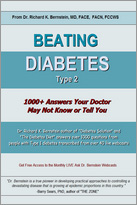Syncope, or fainting, is fairly common as people get older It is especially common among diabetics Even more common is near-syncope this is merely the feeling that you will pass out unless you lie down right away. Simultaneously, your surroundings may look gray or your vision may fade. There are many causes of syncope and near-syncope. These include cardiac and neurological problems, certain medications, and dehydration. These causes are not nearly as common in diabetics as are sudden drops of blood pressure caused by autonomic neuropathy or by inappropriate use of antihypertensive medications — especially diuretics (“water pills”) and alpha-1 antagonists, such as prazosin and terazosin.
When most of us stand from a seated, supine, or squatting position, the brain sends a message to the blood vessels in our legs to constrict reflexively and instantly. This prevents blood from pooling in the legs, which would deprive the brain of blood and oxygen If you’ve had high blood sugars for many years, the nerves that signal the vessels in the legs may conduct the message poorly (a sign of symathetic neuropathy) A drop in blood pressure upon standing is called postural, or orthostatic, hypotension.
Alternately, if you eat a big meal, blood may concentrate in your digestive system, also depriving the brain The normal mechanisms that protect the brain from this shunting of blood may be deficient if you have sympathetic neuropathy It is in part to gauge potential for these reactions that I measure supine and standing blood pressures, and perform R-R interval studies on all diabetic patients A recent study of medical (mostly nondiabetic) outpatients m the United States suggests that 20 percent of individuals over the age of 65 and 30 percent of those over age 70 have documentable postural hypotension For diabetics the incidence is probably much greater.
A common scenario for syncope or near-syncope involves the diabetic who gets up in the middle of the night to urinate and keels over on the way to the bathroom A simple way to avoid this is to sit at the edge of the bed with feet dangling for a few minutes before standing.
Another syncope scenario involves the person who goes to the toilet and passes out while trying to produce a bowel movement or urinate.
Again, the reflexes that prevent shunting of blood away from the brain are blunted by sympathetic neuropathy.
If syncope is caused by transient low blood pressure as a result of autonomic neuropathy, one should lay the victim out flat and elevate his feet high above his head He should return to consciousness almost immediately.
The symptoms of syncope are similar to those of moderate to severe hypoglycemia In both cases, the brain is being deprived of a basic nutrient — oxygen in the case of syncope, glucose in the case of hypoglycemia. Furthermore, postural hypotension can also occur as a result of hypoglycemia. Some symptoms of near syncope include faintness, visual changes, and disorientation.
Whatever the cause of fainting or near syncope, blood sugar must be checked to rule out hypoglycemia. If blood sugar is normal no amount of glucose will cure the problem.
I recently had a query from another author of diabetes books:
Since I told you about my aunt who had postural hypotension secondary to dehydration, I’ve observed many, many instances of this condition amongst my patients and even my mother and my mother-in-law. I see this most commonly in elderly individuals who avoid the consumption of fluids and salt. The problem usually occurs in hot weather when they are losing fluid through perspiration, and are not replacing it adequately. In addition their decreased intake of salt makes it more difficult to retain water. They become dehydrate. Since their blood volume is diminished for lack of water, they are unable to deliver enough blood to the brain. This problem is especially common in people with diabetes because of sympathetic neuropathy which prevents arteries in’ their legs from closing down when they stand. This automatic or more appropriately; autonomic, reflex prevents blood from pooling, in the legs and depriving the brain. When such dehydrated individuals stand up they get light headed and feel like they are going to pass out.




